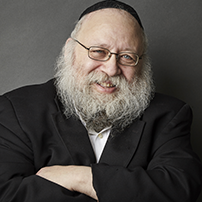
Blessings and Curses: A Discrepancy
Parshas Ki Savo is known for the blessings and curses that were promised to the Jewish people for compliance or non-compliance with G-d’s will.
When we compare the words used by the Torah to describe these blessings and curses we discover some discrepancies.
One such inconsistency relates to the spelling of a word that appears in both contexts:
With regard to the blessings, the Torah states:
And it will be if you obey the L-rd, your G-d, to observe to fulfill all His commandments which I command you this day, the L-rd, your G-d, will place you supreme above all the nations of the earth.
And all these blessings will come upon you and overtake you, if you obey the L-rd, your G-d.
As for the curses, the Torah states the following:
And it will be, if you do not obey the L-rd, your G-d, to observe to fulfill all His commandments and statutes which I am commanding you this day, that all these curses will come upon you and overtake you.
In both places the Torah speaks of an overtaking. But there is a slight difference in the way the applicable Hebrew word, v’hisgucha, is spelled, which nuance doesn’t come through in the English translation:
With regard to the blessings, v’hisugucha is spelled without the letter/vowel vov-והשיגך. By contrast, when it comes to the curses, the same word is spelled with a vov-והשיגוך.
When a word is spelled with a vov, it generally suggests that the word and subject should be understood in its fullest sense. And when a word is spelled without the vov, it intimates that the subject is lacking wholeness. Why then would the promise of blessings be deficient while the overtaking of the curses would be complete? Isn’t it axiomatic in Judaism that the measure of goodness and blessings from G-d is much more robust than the measure of negativity and curses?
We’re Not Alone!
The medieval commentator Rabbenu Bachye answers that when the word is spelled without the vov it can be translated in the singular person, but when it is spelled with the vov it is to be understood in the plural sense. The Torah wishes to impart a comforting message: when a person suffers from curses and is in pain, he or she is never alone. As the Pslamist states (Psalm 91:15): “I am with him in his distress.” G-d suffers with us. When we experience blessings in our lives, we do not enjoy G-d’s intimacy with us as much. Thus, the overtaking of the curses is spelled with the plural form to indicate G-d’s intimacy with us, especially, in times of suffering.
G-d does Not Want to Overwhelm Us
The work Sifsei Kohain sheds additional light on this subject:
Blessing must come to us one at a time to be received fully by us. Too abundant a measure of good can overwhelm us or moderate the blissful experience of what each blessing offers. We are best able to appreciate and enjoy our blessings when they come at us one at a time.
What Does “Overtaking” Mean?
One may suggest another explanation for the change in spelling by first answering another basic question. What exactly does the Torah mean when it says that the blessings or the curses will “overtake us?” It sounds as though the blessings must pursue and overtake us!
The classic commentator Sforno explains that G-d will bestow the blessings on us even if we don’t seek them.
The Talmudic work Hamakneh offers an alternative explanation for the blessing’s need to pursue us:
Everything that exists seeks to rise to a higher level in terms of its proximity to the Divine. The earth wants to be elevated so it provides the world with vegetation. The plants are then consumed by the animals and are therefore elevated to a higher sphere. The animal, when consumed by us, is, in turn, elevated into the realm of humanity. We are ultimately elevated into the realm of the Divine. However, this only can occur when we use the energy from kosher meat to better serve G-d. When that happens, eating becomes an exercise in elevating the creation to its heavenly source. Otherwise, eating is reduced to an empty and destructive act rather than one with a sublime nature. When we do things the correct way, nature itself craves to be given to us, in that way. There is an innate desire on the part of all of our material resources to be consumed and experienced by us because we can liberate and restore the Divine spark that exists in all physical matters to its source.
Thus, the Torah states that if we listen to G-d’s voice, not only by performing the Mitzvos, but by using everything for a higher purpose, then those blessings themselves pursue us because only humanity can elevate everything in existence and make the world a dwelling place for G-d.
Permeating Blessings
Perhaps one can offer a novel explanation of the need for the blessings to overtake us:
A blessing is only a complete gift of grace when we are able to appreciate it as a blessing. If one were told that they won the lottery while going through a life threatening illness, or a tragic loss of a loved one, G-d forbid, the good news would just bounce off them. At that moment, they wouldn’t have the emotional stamina to internalize the blessing and fully appreciate it.
Thus, the Torah says that not only will the blessings “come upon you,” but they will also overtake us, permeate us and bring us genuine joy and pleasure.
But there is a catch. In order for us to internalize the blessings and truly appreciate them, we must be open to receiving them the right way. If we are arrogant and think of ourselves as totally deserving these blessings solely in our own merit, then we have created a barrier to receiving them. A blessing can only be fully appreciated if we are humble and realize that we too are deficient, that we lack our own vov, which symbolizes completeness. G-d, then, and only then, bestows these blessings on us in such a manner that they are empowered to overtakes and permeates us with their goodness.
Elijah Without the Vov
One may suggest another explanation for the omission of the letter vov in G-d’s promise of the blessings:
According to our Sages, the prophet Elijah’s name is spelled five times in the Tanach without using the letter vov, while Jacob’s name is spelled five times with the vov. Rashi explains that Jacob “appropriated” the vov from Elijah as collateral for announcing the coming of Moshiach. The simple meaning of this is that if Elijah feels that the Jewish people are not ready for Moshiach and might wish to delay his announcement, the letter vov would be taken from him to guarantee that Moshiach will come.
Why the letter vov?
The Zohar states that vov symbolizes emes-truth. In Galus, we lack truth and consistency. We are constantly beset by ups and downs. We therefore crave that Moshiach will bring truth and authenticity to the world. But Elijah, who announces the coming of Moshiach, is himself a paragon of truth and would not feel the need to come. Thus, Jacob appropriated the vov which denies Elijah the ability to experience truth in its fullest measure and thus empathize with all of those in Galus.
We can now understand why the word for the blessings overtaking us is spelled without the letter vov, to indicate that all these blessings, without the letter vov, by definition, lack consistency as long as we are still in Galus. Even Elijah is missing the letter vov until Moshiach comes. To enjoy all our blessings we must have Moshiach.


